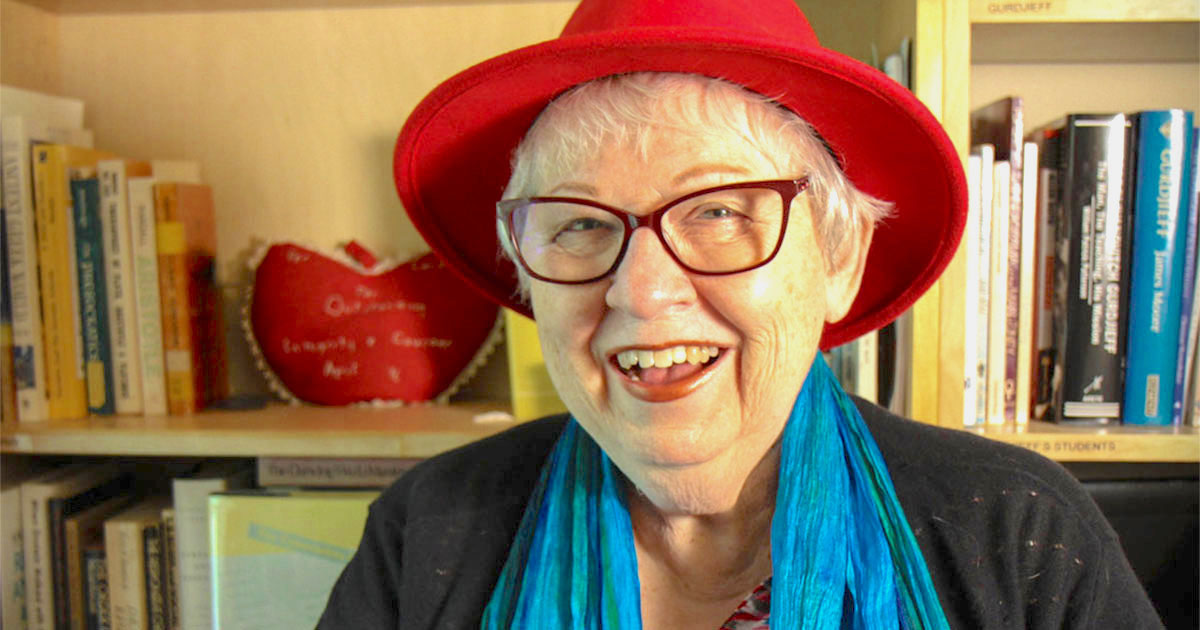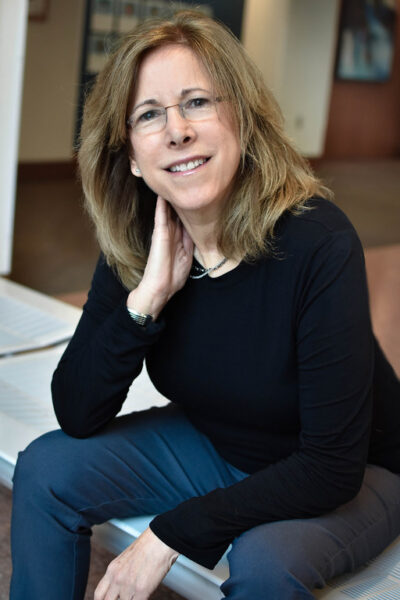A Disruptive Educator Who Helps Others Find the Answers

Carol Sanford knows a lot about the workings of organizations, about how to develop and inspire individuals to be their best, but don’t call her an expert. Don’t call her a coach either.
To call someone an expert or coach suggests that they are the absolute authorities, Sanford says, that their words are the final, definitive answers on a topic. “I never let myself think I have the answer,” she says. “I teach the process of discovery, not the answers.”
Instead of a coach or expert, Sanford’s website describes her as a “disruptor and contrarian.” Ask Sanford directly, and she’ll describe herself as an “educator.” For more than four decades, she has worked with dozens upon dozens of companies, helping to foster change in organizations. She encourages clients to think and to question, even if that means questioning the very things she is trying to teach them.
“I open every class by saying don’t trust me,” she says. “Don’t believe anything I tell you without testing it in your own experience.”
In addition to being a public speaker and the author of six books, with topics ranging from strategy to management to leadership, Sanford also is a Senior Fellow in Social Innovation at Babson. Hailing from a range of industries, the senior fellows serve as advisors, sharing their experiences and knowledge with the Babson community.
“It’s a wide slew of people, all who care about the changing role of business in society,” says Cheryl Kiser, the executive director of Babson’s Institute for Social Innovation, who organized the senior fellows and invited them to Babson.
Senior fellows speak to classes, support faculty, make connections for students, and advise them on their startups and careers. “I call on senior fellows all the time,” Kiser says. “They are people in the know, and they keep me in the know.”
Sanford is a prime example of the deep knowledge and commitment found in senior fellows. Even after being diagnosed with amyotrophic lateral sclerosis (ALS) last year, she continues teaching, writing, and learning. “It is continual,” she says. “Until the day I die, I am in a long thought process about how to help people think for themselves.”
Change Leaders
As a group, the senior fellows are interested in making positive change in business and society. Babson has nearly 70 of them, and they come from a variety of fields, including the corporate sector, politics, media, philanthropy, banking, and academia. Among other things, they are authors, educators, consultants, engineers, and entrepreneurs.
“They see themselves as change leaders,” Kiser says. “They all have social impact jobs, both in the private and social sectors.”
“I want each human to know how to be conscious in their work. Most of us are very mechanical. We do what others tell us. I talk about the process of coming to an answer and defining it yourself.”
Carol Sanford, Senior Fellow in Social Innovation at Babson
When recruiting potential senior fellows to the unpaid position, Kiser emphasizes the work they will do with students. “When students need something, I will call upon you,” she tells them. “I only ask that you will be helpful and be ready.”
Kiser has long been impressed by Sanford’s work and credits Sanford with helping her become a better leader. Kiser even wrote the forward to one of Sanford’s books, The Regenerative Business, which examines how organizations can help employees reach their fullest potential.
“She touched my spirit when I first met her,” Kiser says. “She had lived it all, counseled the best and the brightest and knew there was much more to business than business as usual.”
For her part, Sanford was honored to be asked to be a senior fellow. She praises Babson’s Institute for Social Innovation for how it helps students to make a social impact. “I do love Babson,” she says. “I love what Cheryl has created. We desperately need that.”
Not Afraid
To work with Sanford is a cerebral and challenging experience. “I work in a way that is terribly disruptive,” she says. “I make people uncertain as to what they are certain about.”

Her aim is to empower people to think hard about themselves and what they assume to know. “I want each human to know how to be conscious in their work,” she says. “Most of us are very mechanical. We do what others tell us. I talk about the process of coming to an answer and defining it yourself.”
Hopefully, people also will come to understand how their work affects not only their organizations but also their communities and the world at large. “You have to think about how they are all affected by your actions and your decisions,” she says.
With her illness, Sanford knows her time is short. She just finished writing a new book that she suspects will be her last, and many who have learned from her, hearing about her ALS diagnosis, have been reaching out.
Still, she keeps teaching, writes on Substack, and moves forward. The work is not over. “ALS is a horrible disease, but you don’t have to make it horrible,” she says. “I will keep doing it until I can’t write or I can’t think anymore. I am not afraid.”
Posted in Community




